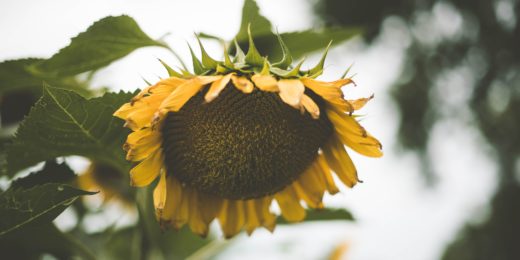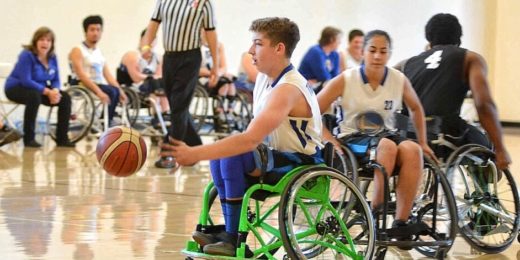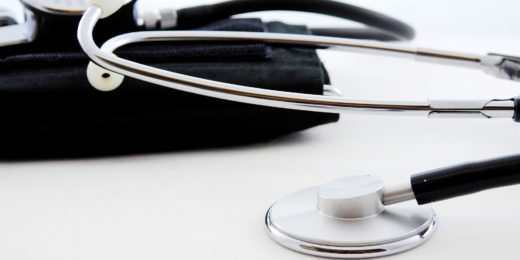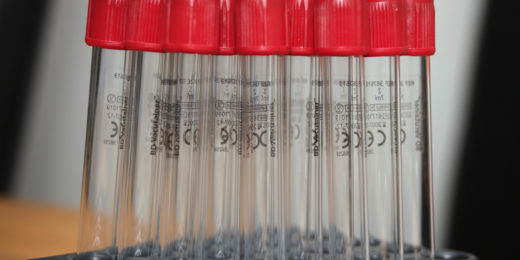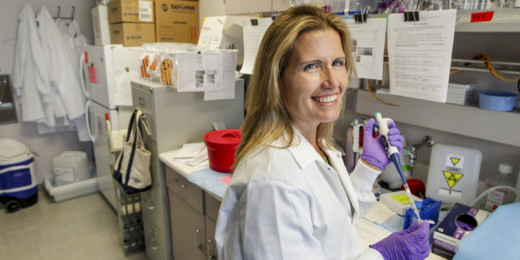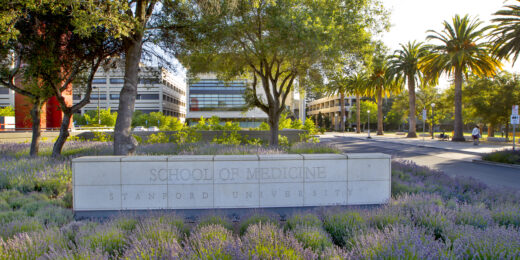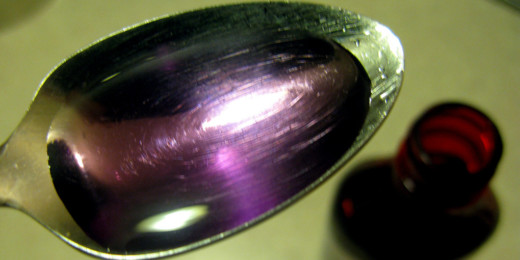In this Stanford Medicine Unplugged essay, former medical student Jennifer DeCoste-Lopez reflects on the loss of a young patient.
Category: Stanford Medicine
Are mechanical or biological heart valves best?
In this video, Stanford Medicine heart surgeon Joseph Woo discusses his award-winning research that examined the pros of cons of mechanical versus biological valve replacements.
From heart transplant to wheelchair basketball, a patient’s story
Ben Thornton received a heart transplant when he was 3-years-old and later suffered a complication that left him struggling to walk. Now, he's thriving as a wheelchair basketball player.
From the Scope archives: My struggles with the third-year of med school – and the words that helped me
In a candid piece, Hamsika Chandrasekar shares the challenges of being a third-year medical student.
The link between a mom losing a relative during pregnancy and her child’s mental health
New Stanford research indicates that having a mom losing a loved one during pregnancy may affect the mental health of the child as he or she grows into adulthood.
Keeping fit fights off genetic risk for heart disease, Stanford study finds
In one of the largest observational studies on fitness and heart disease, researchers examined found that people with higher levels of grip strength, physical activity and cardiorespiratory fitness had reduced risks of heart attacks and stroke.
Telomerase key to liver regeneration, Stanford researchers find
Liver cells expressing high levels of telomerase – a protein normally associated with resistance to aging and implicated in cancers and stem cell maintenance – are necessary to regenerate the organ after normal cell turnover or in response to damage.
Improving patient safety with bedside computer vision
Can computers carry out hospital safety-monitoring tasks better than humans? A Stanford research team has been testing the idea; so far, it's working well.
Stanford researcher making strides toward understanding autism
Inspired by family members to pursue a science career, Stanford's Karen Parker is working to better understand the biological basis of social functioning as related to autism.
Stars of Stanford Medicine: Expanding access to science education
This Stars of Stanford Medicine Q&A features Cooper Galvin, a graduate student in biophysics, who is working to make science accessible to all.
It’s when, not if, computers come for medicine
Future physicians may one day be practicing more as overseers rather than decision makers, argues Stanford medical student Steven Zhang.
Stanford and Common Sense Media explore effects of virtual reality on kids
How are kids using virtual reality? What's the effect of VR on their brains? A new report delves into these questions and provides parents and educators with a practical guide on VR use.
Stress hormone rise at night leads to weight gain
Immature fat cells grow up if stress hormones rise at night. A new study explains the molecular underpinnings of why people gain weight due to chronic stress, disrupted circadian rhythms and treatment with glucocorticoid drugs.
Probing concussion’s complexities with football mouthguards and a whole lot of computer time
Concussion is a serious public health problem, but researchers don't fully understand how they happen or how to prevent them. Now, researchers find, concussion is more complex than previously thought.
Making moves to increase diversity in radiology — “It’s a must”
Stanford's Department of Radiology boosts its diversity effort, focusing on education, diversity in leadership and inclusion.
Next up: Cough medicine from bioengineered yeast?
Stanford scientists have figured out a way to convert common brewer’s yeast into an efficient factory for making a non-narcotic cough medicine that occurs naturally only in opium poppies.


